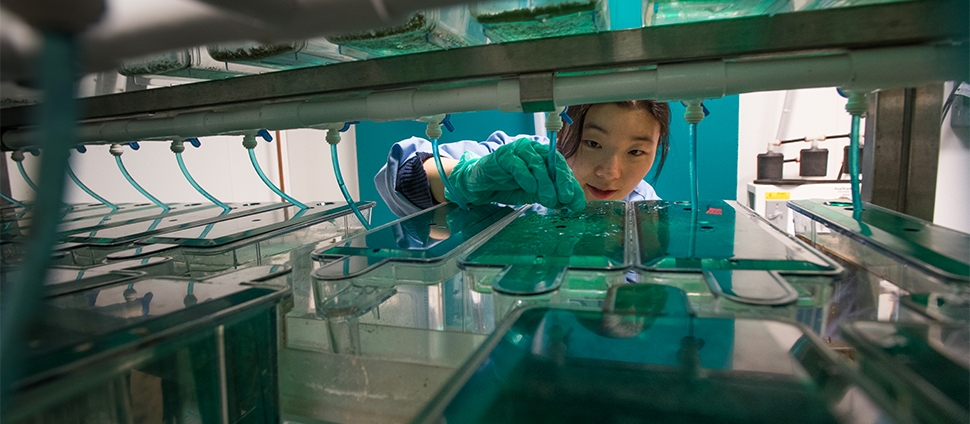Document Type
Article
Publication Date
12-1-2011
Publication Title
Journal of Molecular Evolution
Abstract
While molecular analyses have provided insight into the phylogeny of ciliates, the few studies assessing intraspecific variation have largely relied on just a single locus [e.g., nuclear small subunit rDNA (nSSUrDNA) or mitochondrial cytochrome oxidase I]. In this study, we characterize the diversity of several nuclear protein-coding genes plus both nSSU-rDNA and mitochondrial small subunit rDNA (mtSSU-rDNA) of five isolates of the ciliate morphospecies Chilodonella uncinata. Although these isolates have nearly identical nSSU-rDNA sequences, they differ by up to 8.0% in mtSSU-rDNA. Comparative analyses of all loci, including b-tubulin paralogs, indicate a lack of recombination between strains, demonstrating that the morphospecies C. uncinata consists of multiple cryptic species. Further, there is considerable variation in substitution rates among loci as some protein-coding domains are nearly identical between isolates, while others differ by up to 13.2% at the amino acid level. Combining insights on macronuclear variation among isolates, the focus of this study, with published data from the micronucleus of two of these isolates, indicates that C. uncinata lineages are able to maintain both highly divergent and highly conserved genes within a rapidly evolving germline genome.
Keywords
Ciliate, Cryptic species, Genome architecture, Molecular evolution
Volume
73
Issue
5-6
First Page
266
Last Page
272
DOI
10.1007/s00239-011-9468-x
ISSN
00222844
Rights
© Springer Science+Business Media, LLC 2012.
Version
Author's Accepted Manuscript
Recommended Citation
Katz, Laura A.; DeBerardinis, Jennifer; Hall, Meaghan S.; Kovner, Alexandra M.; Dunthorn, Micah; and Muse, Spencer V., "Heterogeneous Rates of Molecular Evolution Among Cryptic Species of the Ciliate Morphospecies Chilodonella uncinata" (2011). Biological Sciences: Faculty Publications, Smith College, Northampton, MA.
https://scholarworks.smith.edu/bio_facpubs/119


